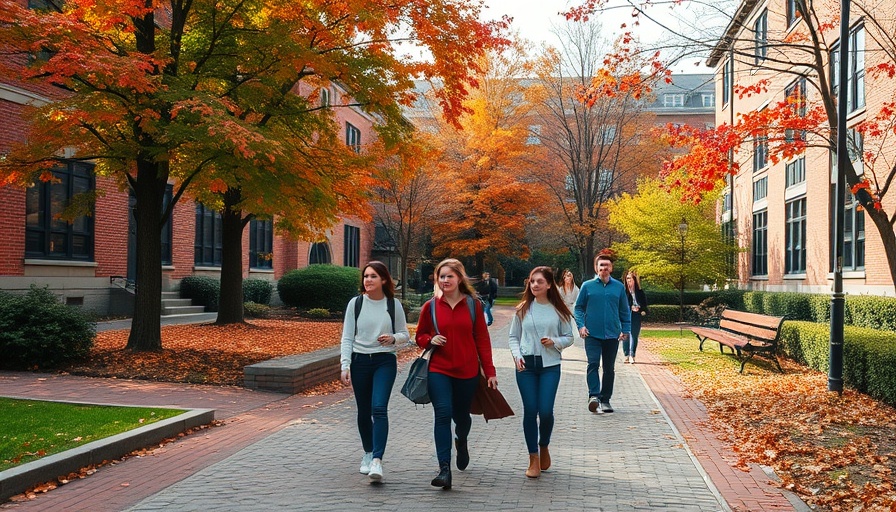
Seattle's New Climate Pioneers: Welcome to Columbia's Faculty
The Columbia Climate School is ramping up its efforts to combat the growing climate crisis with an exciting expansion of its faculty. As of August 2025, the school introduces promising scholars who are set to enhance climate research and education at this pivotal institution. This growth is part of Columbia's strategic commitment to nurture future leaders in environmental science while addressing the pressing issues related to climate change, sustainability, and society.
Meet the New Faces of Environmental Academia
Among the new faculty members is Austin Chadwick, who takes on the role of the inaugural Paros Assistant Professor of Geohazards and Climate Mitigation. Chadwick's expertise shines through his multifaceted research into river systems—a crucial area, especially in understanding our changing environment. With his experience spanning over a decade, Chadwick has led diverse interdisciplinary projects across the globe, from the Mississippi River to the Ganges-Brahmaputra river system, aiming to develop insights into how landscapes adapt to climate challenges.
Joining him is Greeshma Gadikota, Lenfest Earth Institute Professor of Climate Change. Known for her innovative approaches in sustainable energy and metal recovery, Gadikota's earlier academic contributions at Cornell and Wisconsin have paved the way for groundbreaking technologies aimed at extracting energy and critical metals from waste. Her research is a beacon of hope for sustainable subsurface energy solutions that can lead to significant advancements in environmental sustainability.
Marcia Macedo, joint faculty in Environmental Biology and Columbia Climate School, focuses on the impacts of tropical deforestation and degradation on diverse ecosystems. With experiences at the Woodwell Climate Research Center, Macedo brings vital knowledge on how climate change reshapes landscapes, particularly in vulnerable areas like the Brazilian Amazon. Her efforts are directed at developing science-based solutions to manage these ecosystems, ensuring their preservation and resilience.
Lastly, V. Faye McNeill is welcomed as a professor of Climate, who also retains her roles in Chemical Engineering and Earth Sciences. Her research areas, which include atmospheric chemistry and sustainability, are imperative in shaping policy and public understanding of climate-related issues.
Why It Matters to Seattle
For the Seattle community, this faculty expansion is particularly relevant. As Pacific Northwest residents, there is a tangible connection to climate impacts—from shifting weather patterns to the rising risks associated with wildfires and environmental health concerns. Having access to cutting-edge research and innovations from experts dedicated to fighting climate change offers local individuals avenues for engagement in sustainability efforts and education.
Join the Conversation About Climate Action
Understanding the importance of this faculty growth is critical for Seattleites concerned about their environment. The work by these scholars fosters a future where sustainable living is not just a dream but a concrete reality. Collaboration between academia, community, and policy is essential for addressing the climate crisis we face. Now is the time to engage with these developments, advocate for sustainable practices, and support educational initiatives that empower both individuals and communities.
As residents of a stunningly beautiful region directly affected by climate change, Seattleites are encouraged to participate in local climate advocacy and education initiatives. By immersing ourselves in these efforts, we can collectively influence positive environmental change that resonates well beyond our homes.
 Add Row
Add Row  Add
Add 




Write A Comment